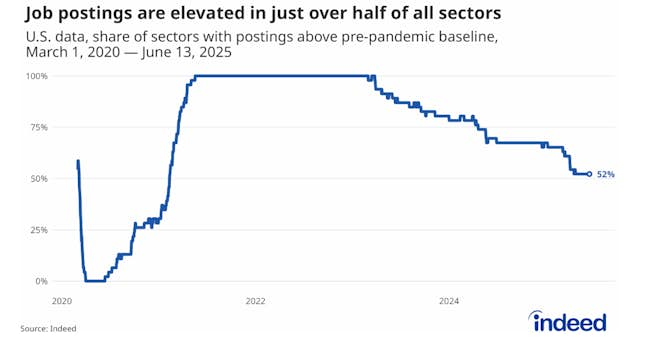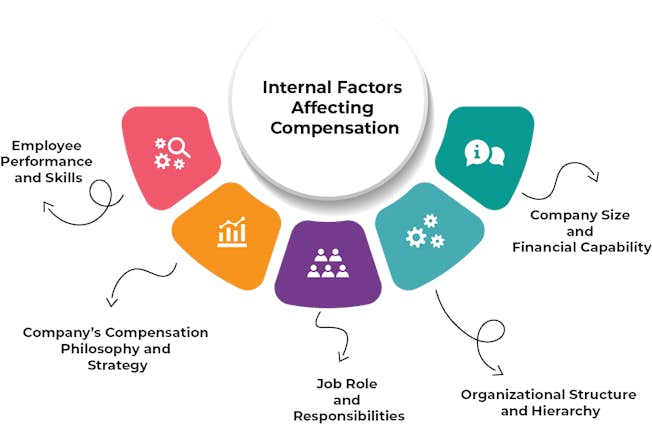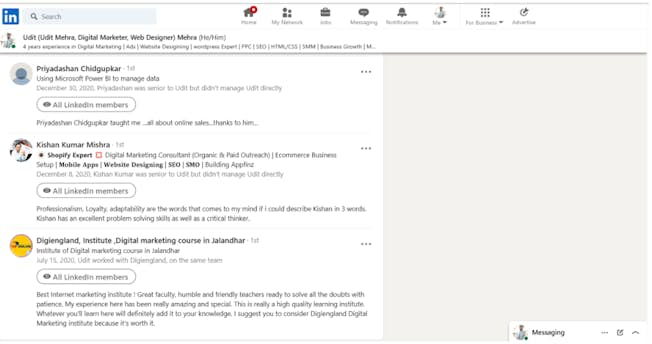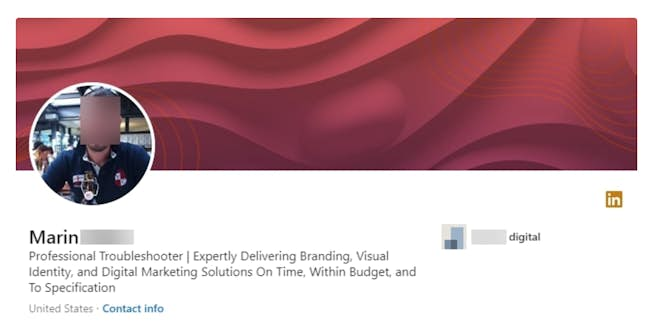Landing a digital marketing job in 2025 comes with its share of challenges. Due in part to ongoing skills shortages and a demand for increased flexibility and better work-life balance from job seekers, the 2025 job market is currently candidate driven, meaning there are more job seekers than positions available.
While this may sound disheartening, with the right approach and mindset, you can connect with opportunities that align with your professional needs and skillset.
In this guide, we’ll explore practical job search tips, techniques, and tools that will maximize your success in a challenging job market.
Read on for actionable online job search tips that will help you stand out in a crowded space.
What does the current job market look like?
With more active applicants than job vacancies available, the competition for employment is fierce. That’s why understanding today’s job market is essential ‒ it gives you clarity, focus, and the confidence to stand out as you search for your next opportunity.

As a result, the current job market is even tougher to navigate than it was a few years ago, and, in line with our recent conversation with Terry Payne of Aspire Recruitment, it’s even more challenging for entry-level candidates, with these roles dropping a whopping 70% from last year.
In some cases, according to Terry, companies are eliminating entry-level positions altogether, opting to redistribute the responsibilities of those roles to existing employees as a way for companies to cut costs.
Hybrid vs. remote work
Years on from the Covid-19 pandemic, which saw companies shifting from in-person to remote work, more and more companies are transitioning back to a hybrid-working model.
“Most clients that we speak to now want [employees in the office] three days a week as an absolute minimum,” Terry explains.
“So the remote job market is falling away. There are some remote roles out there, but if there's more candidates and there's less jobs, and if you're now pushing for a fully remote workplace, you're going to really drop your chances of securing that role.”
Hybrid work remains the most popular choice among employees. In fact, research by Leesman found that 94% of global workers find hybrid working favorable, with most preferring to work from home two or three days per week.
Thanks to the flexibility of a hybrid-working model, employees report having a better work/life balance, a better and more balanced diet, and even more restful and prolonged sleep.
The benefits of hybrid working also include:
- Improved time management: People can structure their day around tasks so they can be more efficient in executing them.
- Less burnout or fatigue: A healthier work-life balance helps employees avoid burnout. Cutting back on long, stressful commutes also frees up time and energy for personal wellbeing.
- Higher salaries: According to research from Neil Patel, hybrid workers globally earn more than remote and in-office counterparts.
- More freedom: Hybrid working allows people to adapt their schedules to suit personal needs. Working hours can also be moved around so people start work earlier or later to facilitate commitments.
- Higher productivity: Many employees report increased productivity in their home environment as they can avoid interruptions by co-workers or being brought into unnecessary meetings.
There are also various challenges associated with a hybrid setup, including:
- Limited resources: Staff working remotely may lack access to equipment or documents
- Weaker culture ties: Office-based employees benefit more from team lunches, casual chats, and social events.
- Collaboration hurdles: While virtual tools help, many find brainstorming and idea-sharing easier in person.
- Strained relationships: Remote/hybrid work reduces informal interactions that build connections across teams.
- Fewer cross-functional exchanges: Spontaneous conversations with other departments, which is often a source of fresh ideas, happen less outside the office.
Fully remote work, on the other hand, offers many of the same benefits as hybrid models, but its drawbacks are often more pronounced. Employees report increased loneliness and isolation, while blurred boundaries make it harder to maintain a healthy work-life balance. Communication and collaboration also take more effort, as spontaneous brainstorming and cross-team exchanges are less natural.
Is it hard to find a digital marketing job?
With the widespread adoption of artificial intelligence (AI) and autonomous technologies, entry-level digital marketing roles are diminishing. And as a wealth of small to medium-sized businesses (SMBs) and startups venture into the tech industry, top-tier talent follows.
Still, digital marketing remains a popular career path. It offers variety, growth opportunities, and the chance to combine creativity with strategic thinking. But with job security under pressure, standing out requires targeted, tactical effort.
“If you look at the data for universities globally, marketing is one of the most taken courses now. So you've got more and more graduates coming through that want to work in the creative space, and then, unfortunately, the jobs market is diminishing at a much quicker rate,” Terry says.
The good news? As brands and businesses across sectors start to invest more in digital strategies, demand for fresh talent remains, especially for those ready to adapt and prove their value.
Digital marketing demand in the Middle East, for instance, appears to be on the rise, while South East Asia has seen a slight downturn, which is likely influenced by fluctuations in the Chinese economy.
While the US and the UK have seen a recent downturn in hiring, both regions are on the uptick again, which is positive news for digital marketers.
What are digital marketing salaries like in 2025?
You may also be wondering what digital marketing salaries look like in 2025. Fortunately, annual incomes are steadily climbing, driven by:
- The rising cost of living
- Expanding roles and responsibilities
- The need for businesses to offer competitive compensation to attract and retain talent

Globally, salaries are on the rise. However, annual incomes differ dramatically by region, influenced by industry specialization, labor supply and demand, and the cost of living.
Digital marketing roles in the US and UK, for instance, often command significantly higher compensation than in MENA or parts of the Asia Pacific region, while Ireland may offer a mid-range benchmark in Europe. Salary disparities are especially noticeable where demand for digital marketing roles is greatest.
Pro Tip: Explore our full rundown of salary guides for digital marketers for an accurate gauge of compensation averages in your target region.
What digital marketing roles are in demand?
Surprisingly, an uptick in emerging AI and tech startups has also been beneficial for marketers, Terry adds, who also urges marketing professionals to “not be scared of the technology companies that are coming out.”
As new technology startups enter the scene, digital marketing jobs consistently follow. Chief Marketing Officer roles, for instance, are necessary to effectively market products, while SEO and PPC roles drive sales and website traffic. On the content side, copywriters, social media managers, and content strategists help raise brand awareness and increase sales.
There are noticeable spikes in specific roles emerging across the marketing industry, including:
- Search engine optimization (SEO) specialists: Businesses are refocusing on organic growth, and SEO is becoming a top priority to help drive website traffic.
- Social media marketers and strategists: As social platforms continue to shape business objectives and drive customer engagement, brands are increasingly looking for professionals who can create and executive social strategies.
- Data analytics and data-driven marketing roles: More emphasis is being placed on performance-driven insights. As a result, companies are looking for employees who can interpret analytics, track ROI, and translate data into actionable strategy.
Although not yet fully established, AI-related skills are becoming key differentiators for candidates. Recruiters are less often looking for “AI Specialists” as standalone hires. Instead, they want generalists who know how to use AI tools effectively.
A data analyst, for instance, might also be expected to know how to use AI tools to generate social media content more efficiently. In other words, AI is seen as a valuable add-on skillset that enhances traditional marketing positions, rather than a dedicated role in itself.
Demand is also being fueled by sector growth. Terry pointed out two industries in particular that are amping up hiring: B2B and events (such as festivals and conferences) and SaaS technology, both of which, he says, require strong marketing teams.
Pro Tip: For a more in-depth look at the latest global marketing job trends affecting your region, listen to the podcast episode with Terry.
How to use AI in your digital marketing job search
Whether you’re an industry newbie or a more seasoned creative professional, you’re likely wondering, “Will AI take my digital marketing job?”
There is a sense of concern in the air. But while AI causes significant shifts within the digital marketing landscape, it doesn’t have to be a threat. In fact, using AI in your job search will help you position yourself in a way that makes you attractive to prospective employers in 2025 and beyond.
Here’s how:
- Practice interviews: generate tailored mock questions and refine your answers with feedback.
- Streamline your search: Use prompts to find companies hiring in your desired sector.
- Find your strengths: Compare your skills against job descriptions to identify gaps and highlight your specialties.
- Polish your messaging: Draft compelling LinkedIn headlines, cover letters, and bios that reflect your personal voice.
That said, avoid copying AI output word-for-word. Edit, personalize, and use AI to enhance your efforts rather than replacing them.
ChatGPT Prompt Guide for your Digital Marketing Plan
How to prepare yourself for getting a job
Now that you have a greater understanding of the current market and how to use AI in your job search, here are some additional tips to help you get ahead of the game:
Stay consistent
Don’t get discouraged if you don’t get the responses you want straight away. Afterall, applying for jobs is a number’s game. You’ll increase your chances of being hired the more applications you send out. Keep applying to the job listings that align with your skills, tracking your job searching efforts as you go to stay organized and on-top of active applications.
As Jim Lecinski notes in his conversation with Will Francis on the DMI podcast, AI tools can be helpful “reasoning tools” to aid in your job-seeking process.
Put in the effort
Don’t just hit ‘Easy Apply’ on LinkedIn and sit back. Find out who the hiring manager is for the roles you’ve applied to and reach out to introduce yourself, build a rapport, and keep yourself top-of-mind. Send a timely email interview followup as a personal rule of thumb expressing your gratitude for the opportunity. Doing so will demonstrate a positive attitude while differentiating you from the competition.
Jim emphasizes that while AI can reduce cycle times, like cutting the drafting of creative briefs from two weeks to two days, the personal human touches, like relationship-building and gratitude, are what differentiate strong candidates.
Customize your application documents
To catch a hiring manager’s attention, customize your CV and cover letter for every role. Start by reviewing CV samples tailored to the specific position you’re pursuing. Then, take time to research the company and weave a relevant fact or insight into your cover letter. It shows genuine interest and helps you stand out.
In Terry’s words, “You can use AI to clean up some grammar, but it should be there to enable your outreach, not to completely write it for you. Because we are creatives in the marketing industry, and so you've got to go make sure that you show some personality.”
Update your assets regularly
Make sure your job history, achievements, and value proposition are current. Refresh your CV, LinkedIn, portfolio, and any job-search profiles on a regular basis so every relevant win, skill, and experience is captured and easy for employers to see.
Add some ‘sizzle’ to your communications
Whether it’s your LinkedIn profile, CV, or cover letter, make your achievements tangible and measurable. Avoid vague statements like “I’m a results-driven marketer.” Instead, tell a story that shows your skills in action, and back it up with data where possible. For example: “By creating a series of audience-specific email nurture sequences for [business name], I boosted demo bookings by [%].”
Terry adds that putting something “tangible” and “measurable” in your CV or on your profile will help turn heads and making hiring managers think to themselves, “I could do with that in my business.”
Show as much social proof as possible
Ask previous colleagues, clients, or employers for reviews or testimonials you can weave into your cover letters or showcase on public profiles like LinkedIn. The more social proof you have to share, the more authoritative and trustworthy your job-seeking assets will be.

As Jim puts it, “a marketer’s job is to be the group in the company that is closest to the user, the customer, or the consumer.” Demonstrating that others trust and value your work makes you a more compelling candidate.
Prep for your presentations/interviews properly
If you’ve been invited for an interview or tasked with a presentation, prepare well in advance. Ensure you’ve covered every base, and practice running through it. Jim even recommends using AI to do a synthetic interview by inputting the interviewer’s LinkedIn profile and asking it to provide you with a simulated interview, complete with improvement tips
You should also note down any practical case examples in addition to the results you’ve earned for previous clients or employers. The more you practice, the more natural and confident you’ll appear on the big day. Don’t forget to showcase your knowledge of the company, demonstrating you understand their values, mission, and company ethos.
Work on your soft skills
Having an array of soft skills will help you stand out, particularly if you’re applying for entry-level roles. Work on your emotional intelligence, your top-level organization skills, negotiation abilities, communication skills, and how to read a room, and you’ll make yourself even more employable.
Mix up your media
Consider creating a video with your CV or a visually-grabbing pitch deck to cut through the noise, stand out from the competition, and make the most memorable first impression possible. Mixing up your media is also an ideal way to showcase your creativity and get your personality across to recruiters and hiring managers.
Terry recommends including some social media videos from the likes of YouTube or TikTok if you have them. “You’ve got nothing to lose and just everything to gain.”
Humanize your profile
Think of public profiles like LinkedIn or recruitment sites as your shop window for employers. Make sure your headline clearly reflects your skills and strengths, and back it up with testimonials or other social proof. Write in your own authentic voice. Recruiters are looking for personality and cultural fit as much as technical skills. Let who you are shine through. Remember: you are your unique selling proposition (USP).

Nurture your network
The stronger and more extensive your professional network is, the more opportunities you’ll uncover. Take time each week to connect with recruiters, hiring managers, and senior decision makers in your target niche or industry. Set up virtual coffees or chats, comment on people’s LinkedIn posts regularly (in a way that shares your insight and offers value), and share past work on your feed. Doing so will widen your network and make you more visible to potential employers.
" “It may be the person who says no to you will influence someone else that may say yes.” "
Look after yourself and your wellbeing
Job searching in 2025 takes effort. It can be easy to overload or burnout, so you need to set boundaries. Stick to realistic networking and application targets and make time for regular self care. For more advice on the subject, read these 10 strategies on how to avoid burnout.
Pro Tip: A professionally written resume or CV remains a powerful job-searching asset in 2025. Make yours stand out by working through our official resume (CV) builder template.
Final thoughts: Keep learning and sharpening your digital marketing skills
Searching for a digital marketing job in 2025 can be tough. Added competition and industry-wide AI disruption means that finding as well as landing opportunities requires more than a ‘spray and pray’ mindset.
With a consistent and strategic approach to job searching, you can secure a rewarding role in 2025, and beyond.
With hiring rates beginning to improve, now’s the time to strike. Follow the tips we’ve shared in this guide, take the time to build on your existing skills while acquiring new competencies, and you’ll get where you need to be sooner than you think.
Be as proactive as possible, commit to continuous learning, and the results will follow.
Use AI to elevate your digital marketing abilities
Artificial intelligence is a game changer for marketers as it helps personalize, optimize, and automate many key marketing activities. Our short interactive AI course (with practical AI tool walkthroughs) will help you understand the fundamentals of AI and use key tools for research, content development, data-driven decision-making, and creative design. Get started today!





